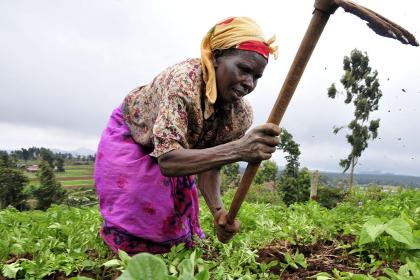
Ten years ago, the world community adopted the Brussels Declaration and the Programmeof Action for the Least Developed Countries (LDCs), providing a framework to accelerate economicgrowth and achieve sustainable development in LDCs. Yet, despite the fact that some of themenjoyed the worldfs highest and most sustained growth rates and they have development potentialin general, more than half of their population still lives in absolute poverty. Their economic hardshipsare being compounded by the recent economic and financial crisis, increasing food and energyinsecurity and climate variability.
UNCTAD has made comprehensive proposals for a new international development architecturefor LDCs. The paradigm shift involves a more pro.active approach to developing productive capacities,which will require a better balance between markets and the State, and places production andemployment at the heart of efforts to reduce poverty. This productive capacity approach gives greateremphasis to the promotion of investment, both domestic and foreign, while using aid to end, ratherthan reinforce, aid dependence.
Foreign direct investment (FDI) has played an important role in LDCs in the last decade, asit was a major contributor to the group´s capital formation. FDI contributed towards promoting propoorgrowth and sustainable development, and reducing social and income disparities. However,the concentration of FDI in enclaves of export-oriented primary production with limited employment,technological and productivity linkages remains the main challenge in most LDCs.
The present report by UNCTAD, prepared on the eve of the Fourth United Nations Conferenceon the Least Developed Countries, aims to give readers a broad overview of the FDI trends in LDCsover the past decade, focusing on the challenges LDCs face in attracting and benefitting from FDIfor developing their productive capacities and on what can be done to improve the situation in thelight of our longstanding work on FDI at UNCTAD. This report provides useful analysis and insightsfor all stakeholders, and will contribute to designing new measures and strategies for achievingsustainable development in the LDCs.





